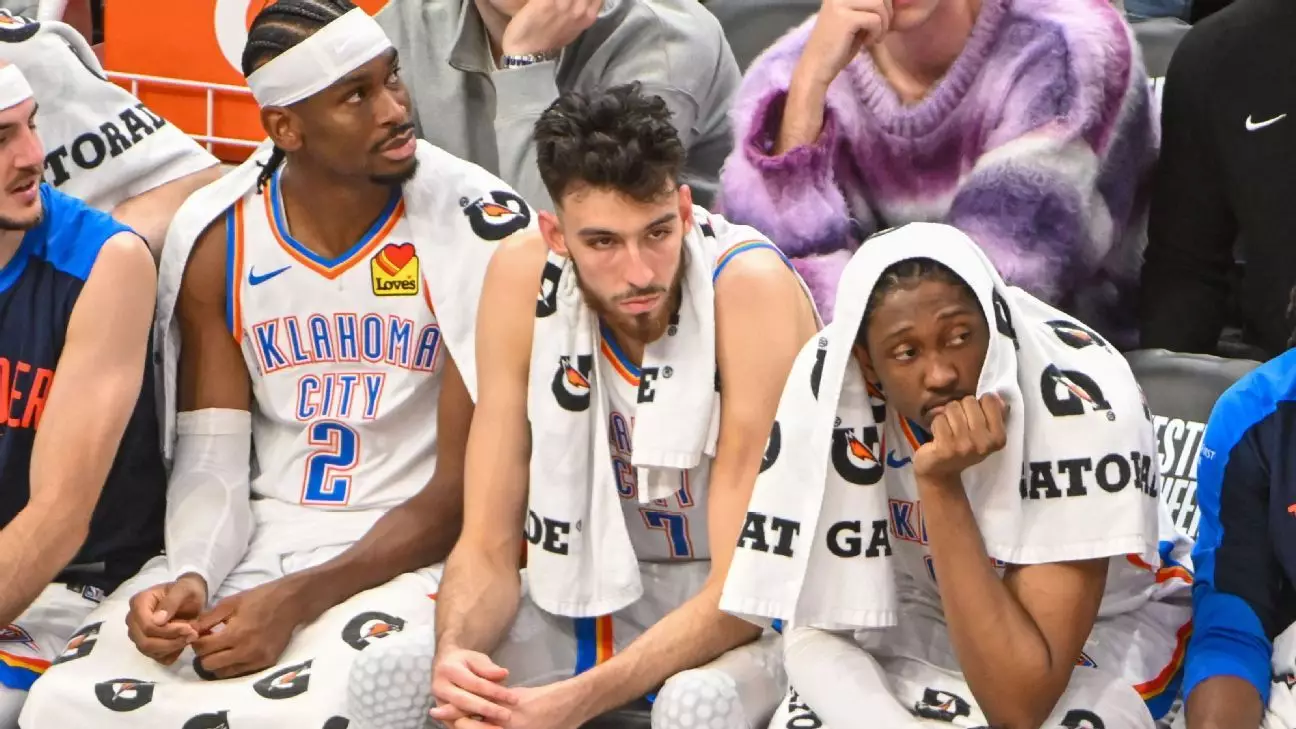The Oklahoma City Thunder entered the Western Conference finals with an air of confidence, having won their first two games. However, that sense of optimism was brutally shattered when they suffered the most significant playoff defeat in franchise history, a 143-101 drubbing at the hands of the Minnesota Timberwolves. This loss was not merely a fluke; it underscored systemic issues that had been lurking beneath their prior victories.
The Thunder’s power forward, Chet Holmgren, captured the essence of their downfall: “Wherever they wanted to go, they got there.” This statement holds more weight than meets the eye. It reveals a lack of defensive coherence and a failure to adapt to the Timberwolves’ aggressive gameplay. Oklahoma City has prided itself on its typically ironclad defense, but in this game, they allowed Minnesota to dance through their defenses as if they were mere spectators.
Comparison with Previous Playoff Experiences
Flashback to the first round against the Memphis Grizzlies, where Oklahoma City found itself in a similar predicament. Trailing by 29 points, they mounted a remarkable comeback to complete a sweep. Yet, this time was drastically different. The Thunder did not exhibit the same tenacity or will to fight back. Instead, they stumbled forward, unable to gather any momentum after falling into a 20-point hole in the opening quarter.
Coach Mark Daigneault lamented their inability to respond to the Timberwolves’ relentless pressure, stating, “They were definitely throwing the first punch in the game.” This was not just a brutal beating; it was a mental lapse. The Thunder’s historic playoff defeat transcends the score; it exposes vulnerabilities that could define their championship aspirations.
Superstar Struggles
Shai Gilgeous-Alexander, the newly crowned MVP, faced his most challenging game of the season, which raises questions about his performance under pressure. Scoring merely 14 points and shooting 4-of-13, he was stumped by Minnesota’s tactical execution. The disparity between his average of 34.5 points in the first two games and this dismal outing illustrates the volatility of star players in high-stakes playoff scenarios.
Minnesota’s coach, Chris Finch, noted their strategy to minimize fouls and control the game’s tempo, stating, “Our competitiveness was at an all-time high.” It is essential to recognize that great players like Gilgeous-Alexander can have off nights, but they must find ways to influence the game even when their scoring ability is stifled. The Thunder’s reliance on their MVP left them vulnerable and demonstrates a lack of diversification in their game plan.
Defensive Collapse: Numbers Tell the Story
The Thunder’s defense, traditionally their cornerstone, crumbled under pressure, allowing Minnesota to shoot an eye-popping 57.3% from the field and 50% from beyond the arc. This stat is a categorical departure from their usual standards and floors the idea that they could be contenders. When a team yields such shooting percentages, the task of winning becomes Herculean, even for the most gifted players.
The Thunder’s defensive efforts fell short, forcing only ten turnovers, the lowest throughout this postseason. This illustrates a disconcerting trend: a team that was once characterized by tactical defense became a pinball machine, bouncing back from each Timberwolves basket without a semblance of redemption.
Lessons from Hardships
As Gilgeous-Alexander stated, “You get punched, you get back up.” This sentiment encapsulates the Thunder’s journey moving forward. Though facing a crushing defeat, they have an opportunity to redefine their narrative. The resilience shown after previous adversities can be a vital asset. This looming prospect will yield whether they can manage to bounce back and reclaim their path to victory.
This loss serves as more than a momentary setback; it’s a critical juncture in understanding their weaknesses and recalibrating their strategies. The Thunder must confront the underlying issues that surfaced during this game. To achieve greatness, they need to adapt, evolve, and harness their pain into power. The road ahead requires grit, vigilance, and a readiness to learn from the harsh realities of playoff basketball.

